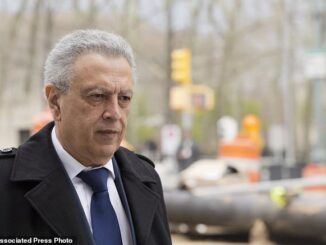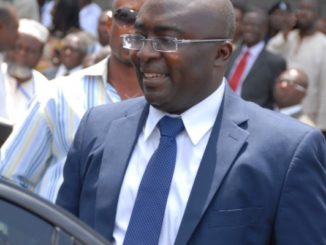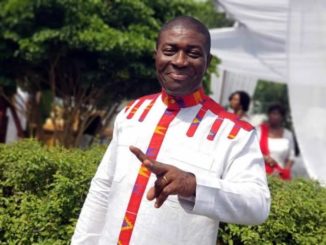A former lover’s taped conversations, murky financial dealings splashed across front pages, and a legacy in ruins.

The emergence of shocking allegations of corruption and money laundering against former Spanish King Juan Carlos have cast doubt over the very future of the monarchy, under his son King Felipe.
Juan Carlos seemed set to go down in history as the leader who skilfully guided Spain from dictatorship to democracy after the death of Gen Francisco Franco in 1975, but the 82 year-old’s private financial activities have prompted two court inquiries in Switzerland and Spain.
Why Felipe has been ensnared
After Juan Carlos abdicated in response to rumours about his scandalous personal life in 2014, King Felipe sought to cut a contrastingly austere figure to that of his larger-than-life father, in a country where the monarchy does not enjoy high levels of support.
But Felipe’s name has also been linked to the luxury lifestyle bankrolled by his father’s offshore millions, prompting calls for reforms and greater accountability. The king is now under pressure to distance himself from his father.
Following the royal money trail
In 2018 a Swiss prosecutor reacted to media rumours regarding Juan Carlos’s obscure fortune and launched an investigation, questioning the ex-king’s Swiss-based lawyer, financial adviser and other associates, including an ex-lover, Corinna zu Sayn-Wittgenstein.
Prosecutor Yves Bertossa’s ongoing inquiry centres on a $100m (£80m) gift to Juan Carlos from the king of Saudi Arabia in 2008, and whether it was in connection with the awarding of a €6.7bn contract for a Spanish consortium to build a high-speed railway from Medina to Mecca three years later.
Mr Bertossa has discovered the existence of two offshore funds, connected to Swiss bank accounts.
One is the Panama-based Lucum Foundation, set up to receive the $100m gift from the late King Abdullah, and which was liquidated in 2012, with almost the entire original amount donated to Ms zu Sayn-Wittgenstein, a German-born businesswoman.
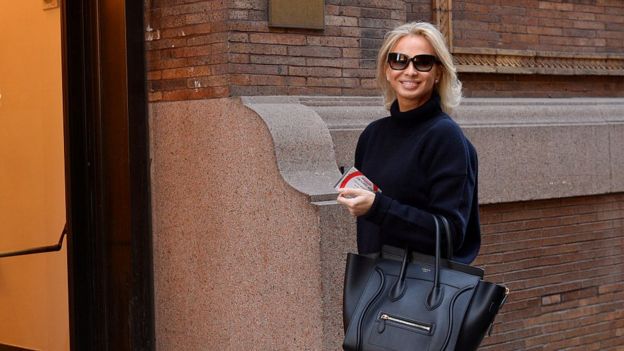 Investigators have questioned his former lover Corinna zu Sayn-Wittgenstein. GETTY IMAGES
Investigators have questioned his former lover Corinna zu Sayn-Wittgenstein. GETTY IMAGESMs zu Sayn-Wittgenstein possesses a contract signed by Juan Carlos demonstrating that the donation was an “irrevocable gift” and not a money-laundering scheme, but also says she paid back money loaned to her from Lucum to buy a pair of apartments used by her and Juan Carlos in the Swiss resort of Villars.
The other fund is Fondation Zagatka, registered in Liechtenstein and whose primary beneficiary is Álvaro de Orleans. He is a distant cousin of the king who has been questioned by Mr Bertossa over why its account received multi-million payments from overseas business deals while shelling out more than €5m on private jet flights used by Juan Carlos.
Mr de Orleans claims he has helped the king out of a sense of “family honour” and that Zagatka’s millions are all his own.
In June, prosecutors at Spain’s Supreme Court announced the start of the first ever investigation into Juan Carlos in his own country, to establish whether the former king could be accused of any crimes related to the Saudi money. The former king remains immune from prosecution for any action committed before his 2014 abdication.
When did it start going wrong for Juan Carlos?
Hints and rumours of Juan Carlos’s flamboyant lifestyle, alleged extramarital affairs and links to corrupt deal-making were frequent during his reign. But Spain’s mainstream media and political establishment largely looked the other way, until an April 2012 accident befell the monarch while pursuing one of his passions: hunting.
He was not hunting boar or deer at home but elephants in Botswana, when unemployment in Spain had topped 24% in the worst recession since Juan Carlos had piloted the country to democracy.
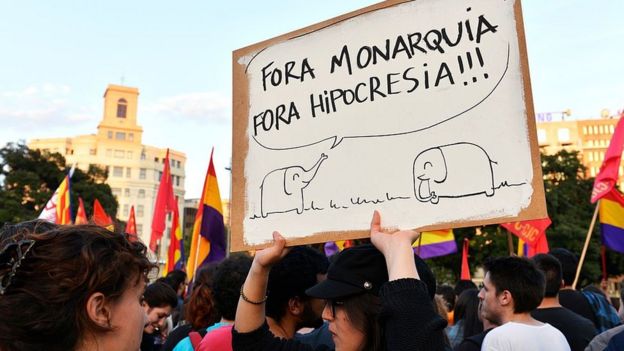
Juan Carlos broke his hip, and when he had to be flown back to Spain the cover on his secret jaunt was blown.
The hunt mishap came shortly after a separate scandal that embroiled the king’s son-in-law, Iñaki Urdangarin, in a fraud investigation that eventually saw him jailed in 2018.
A previously pliant media turned against Juan Carlos. Spaniards were soon informed that their king had been in Botswana with his lover, Ms zu Sayn-Wittgenstein, with the tab paid for by a Saudi magnate.
A series of health problems and persistent rumours regarding his personal life led to the decision to abdicate in favour of King Felipe in June 2014. But the worst was yet to come for the newly titled “emeritus king”.
Bombshell revelations on tape
In 2018, online newspaper El Español published a series of articles based on taped conversations between Ms zu Sayn-Wittgenstein and José Villarejo, a former police investigator currently in jail. Unbeknown to Juan Carlos’s ex-lover, Villarejo had a habit of recording his conversations with the rich and powerful.
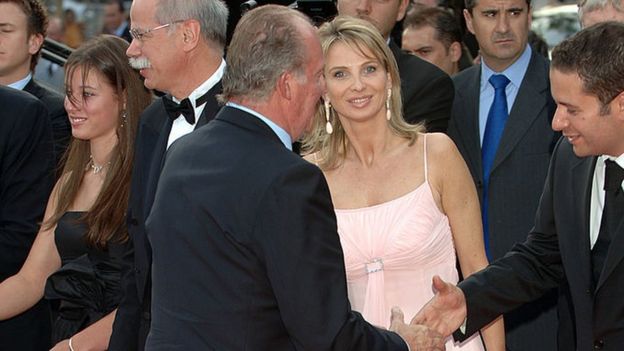
Speaking to him in her London home in 2015, Ms zu Sayn-Wittgenstein describes what she alleges to be Juan Carlos’s clumsy efforts to launder money. She mentions her surprise at suddenly being told she has been gifted a property worth €3m by the king of Morocco, before being asked to pass it over to the former Spanish monarch.
“They say ‘she doesn’t want to give things back’. But if I do, it’s money laundering and I´ll go to jail,” Ms zu Sayn-Wittgenstein can be heard saying on the tape. She then claimed that members of Spain’s CNI intelligence service had organised a campaign of intimidation to pressure her into co-operating.
“The king has no concept of what is legal and what isn’t,” Ms zu Sayn-Wittgenstein said.
The tapes led directly to the opening of investigations in Geneva and at Spain’s National Court. The Spanish inquiry has since been taken up by the Supreme Court as it is the only judicial institution permitted to probe the former king.
–
Source: BBC

